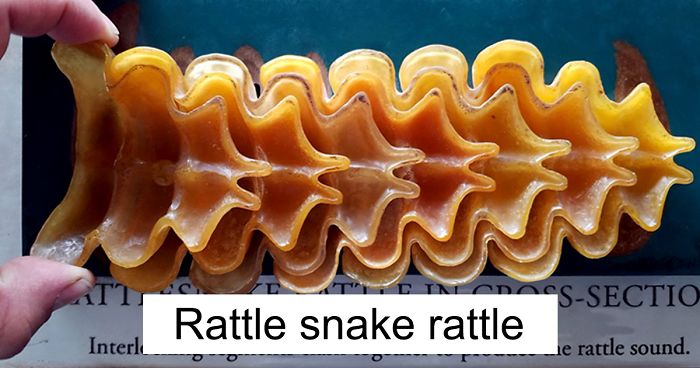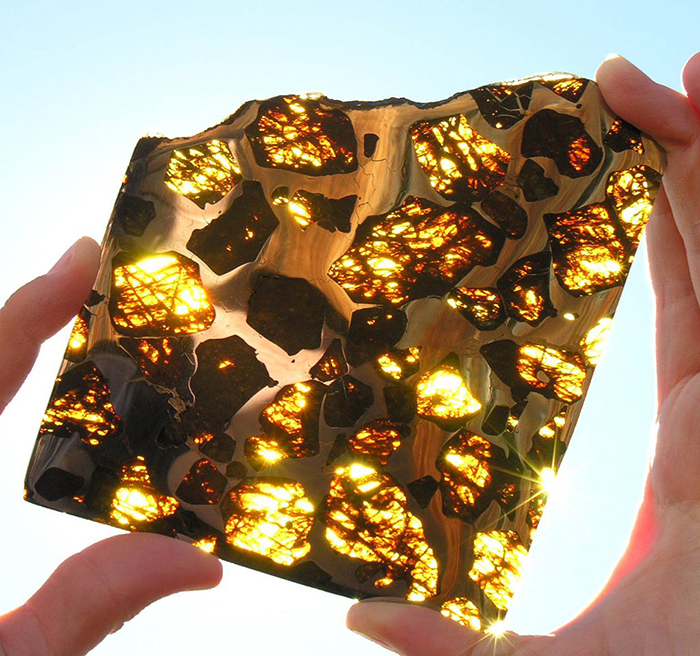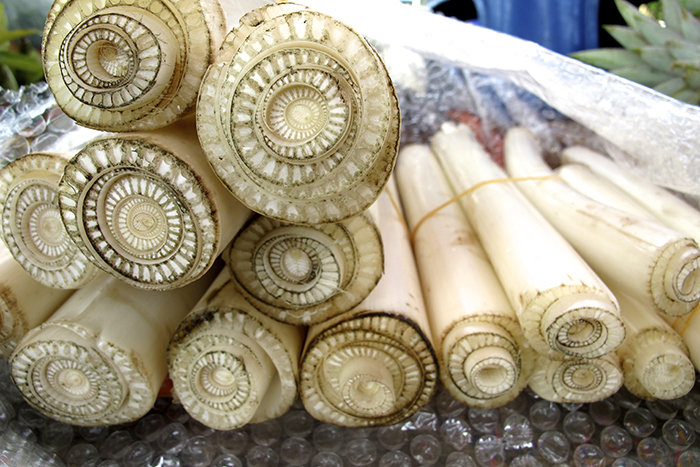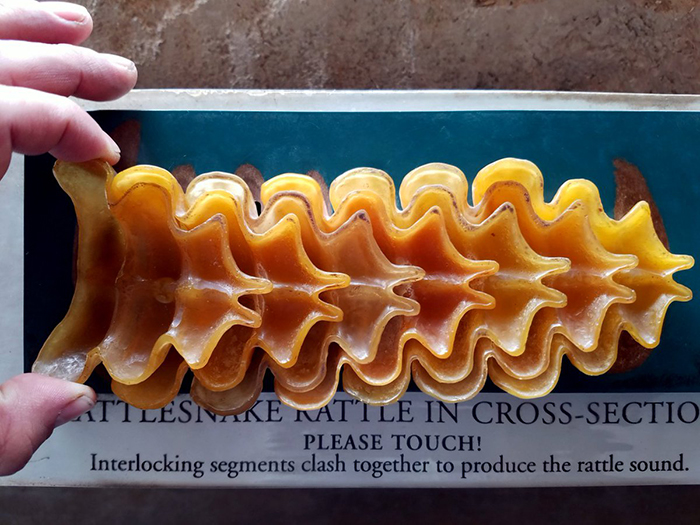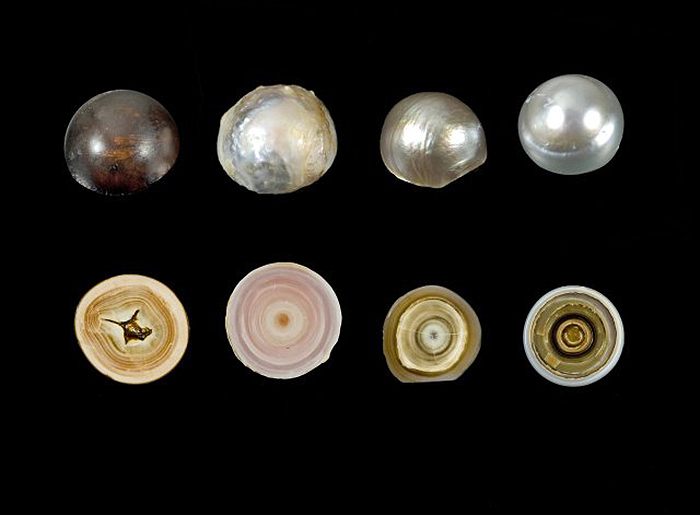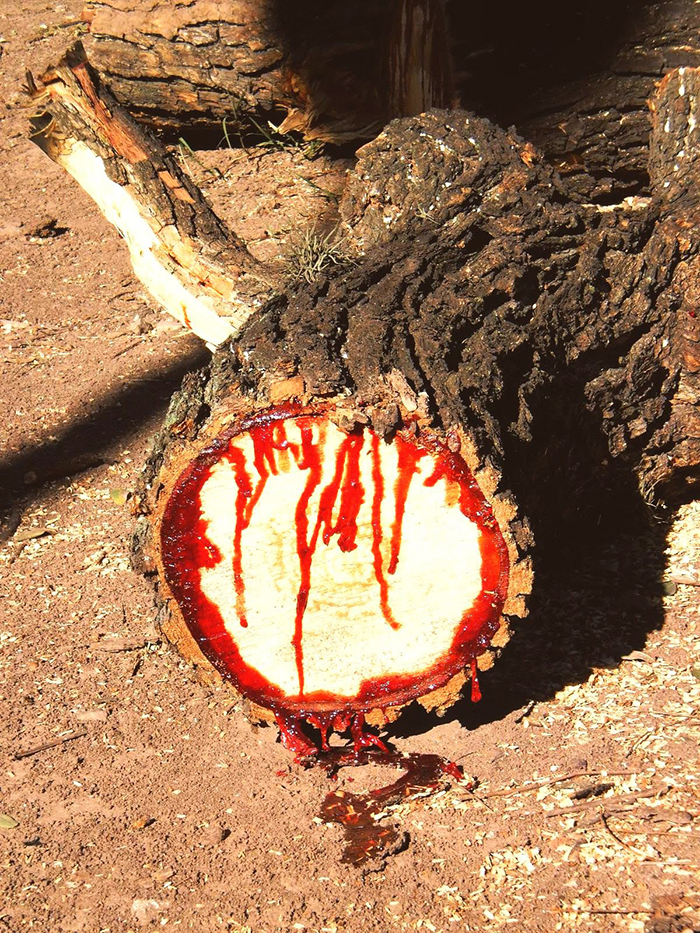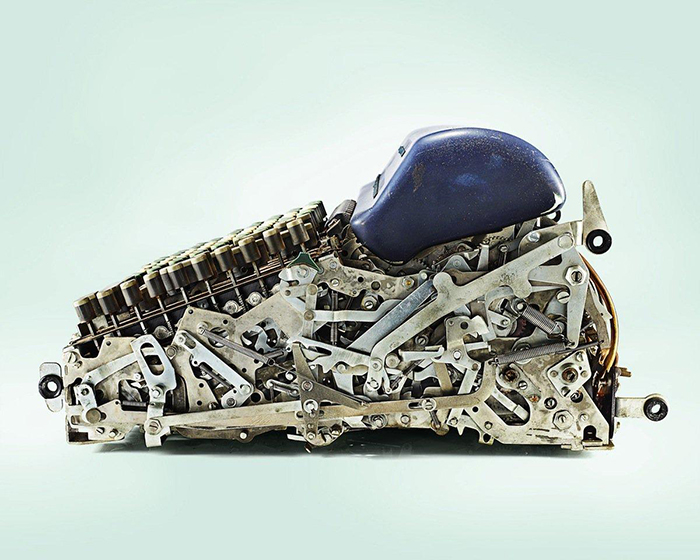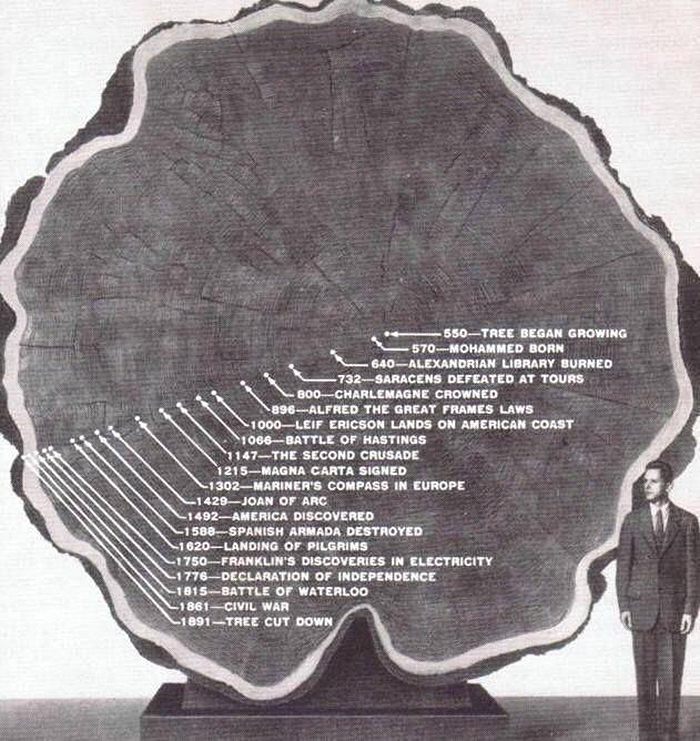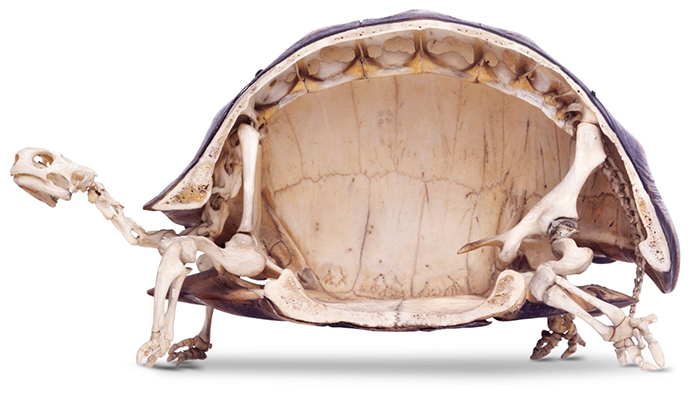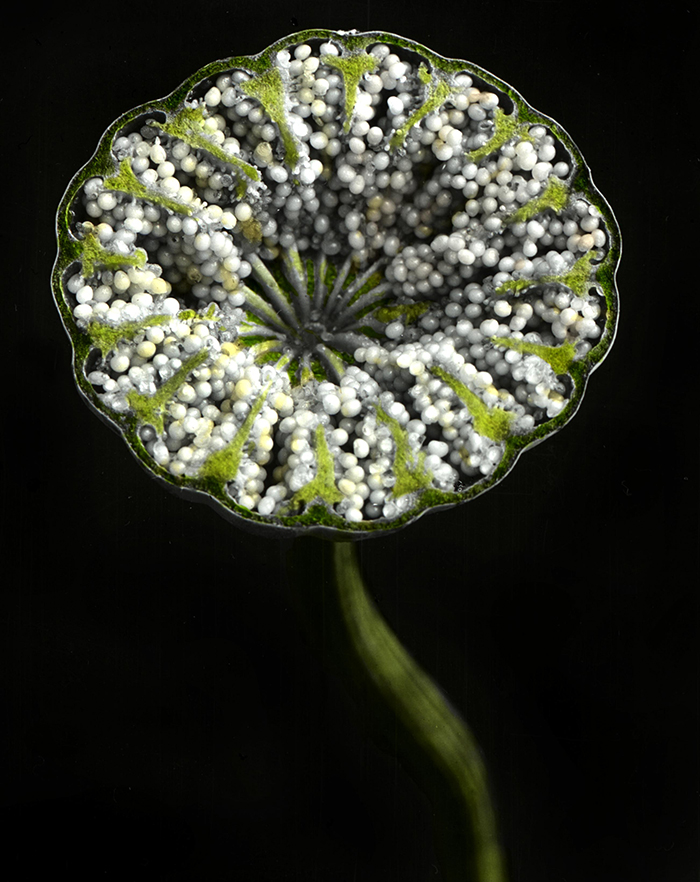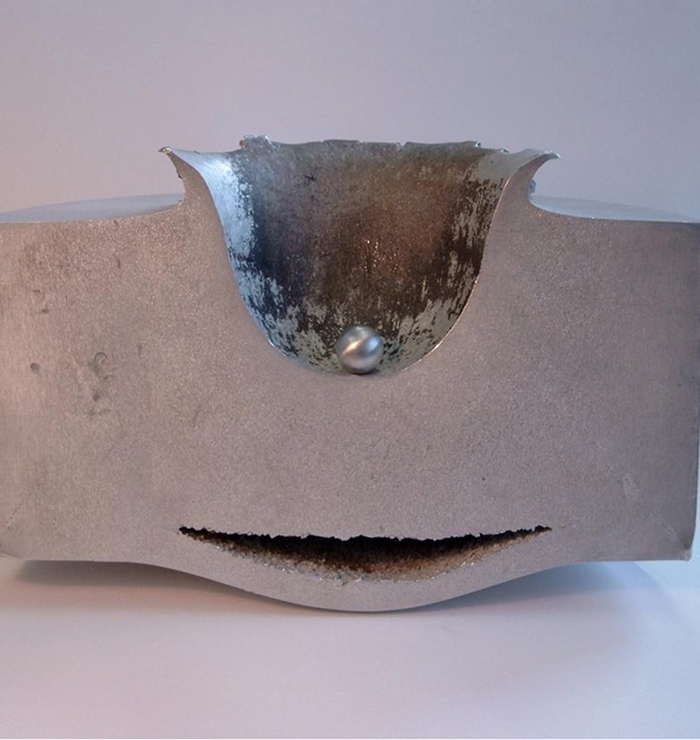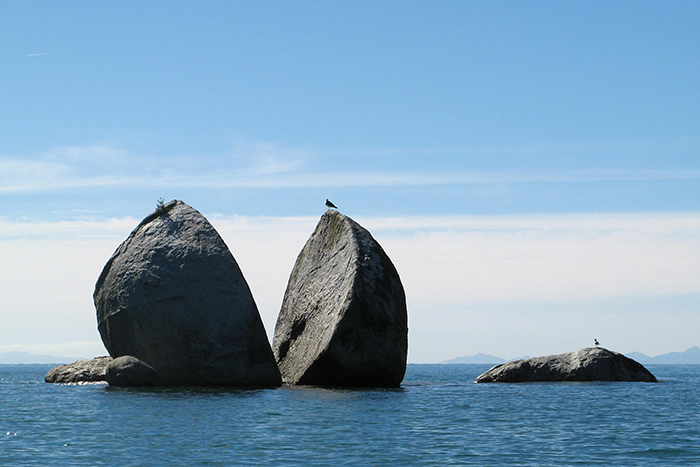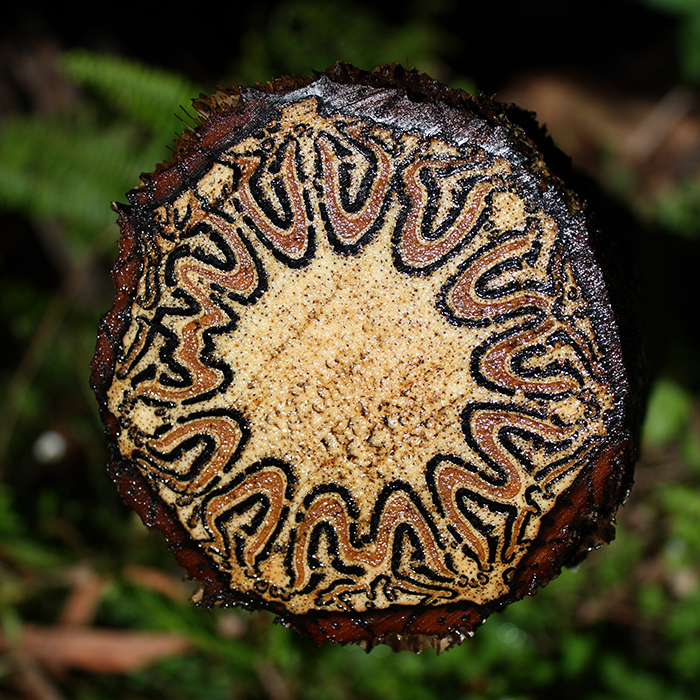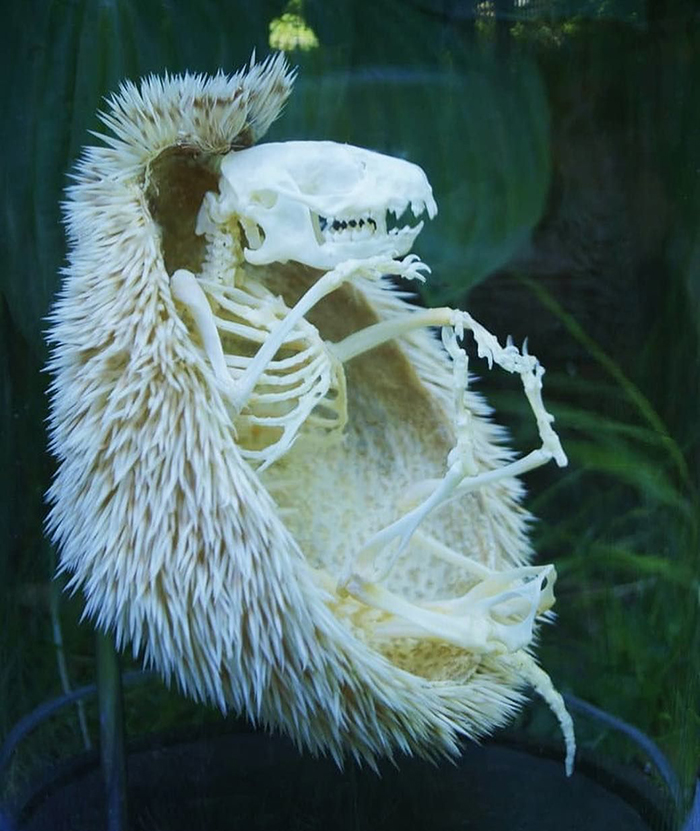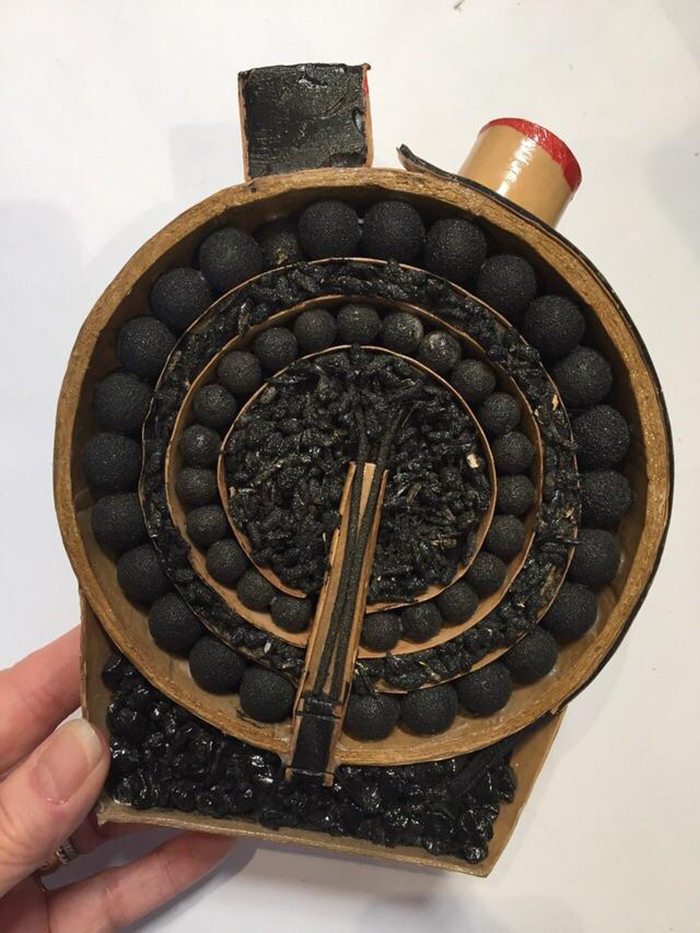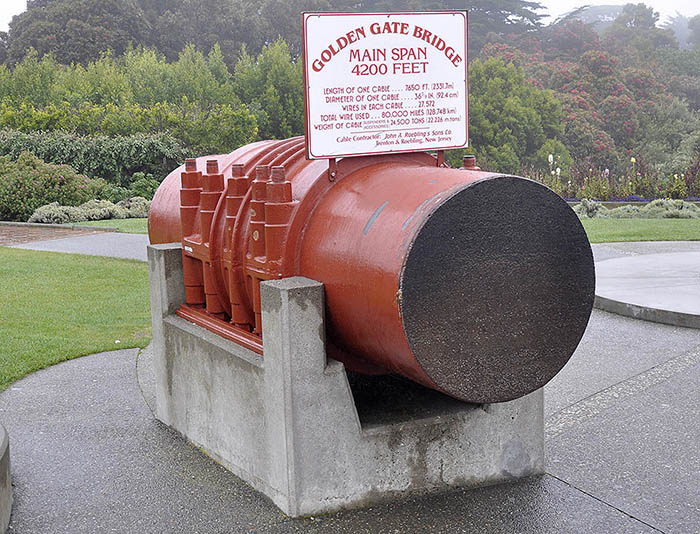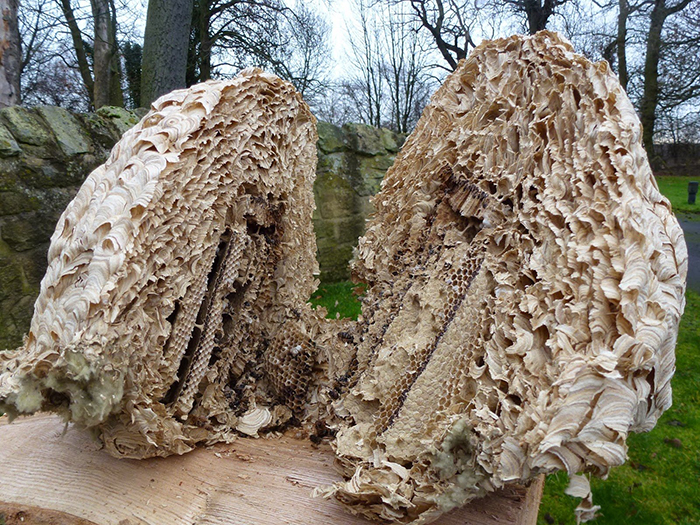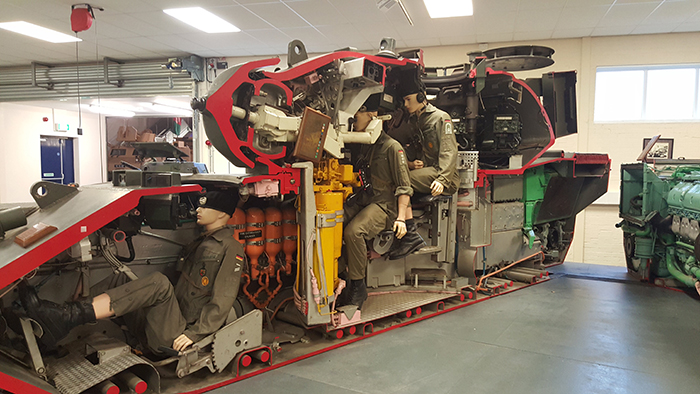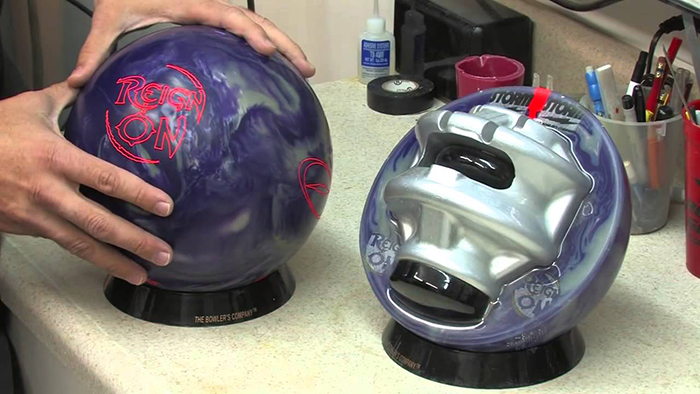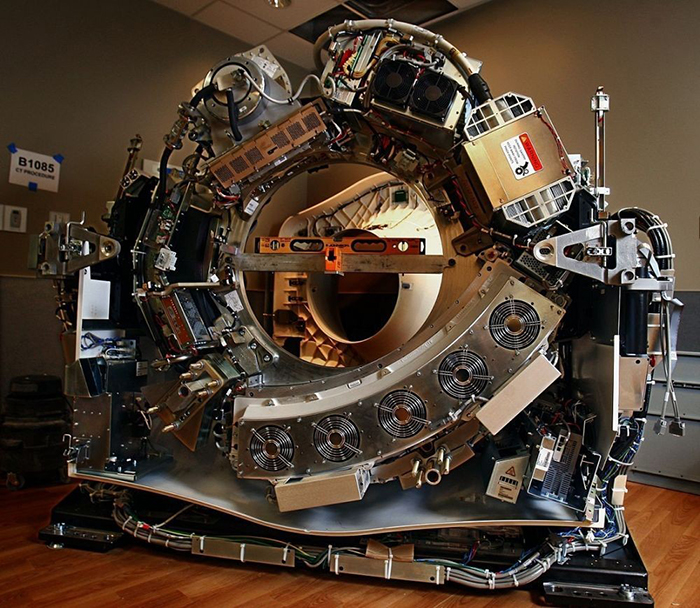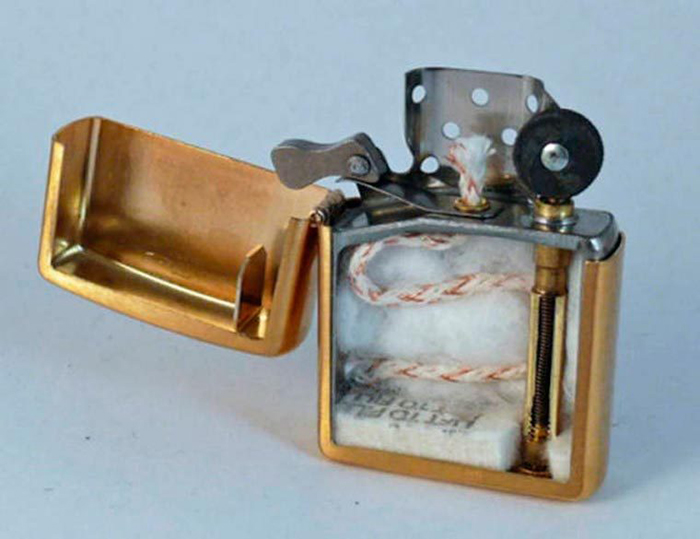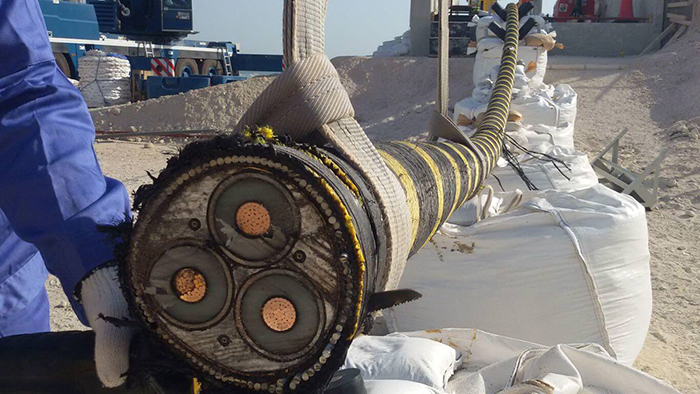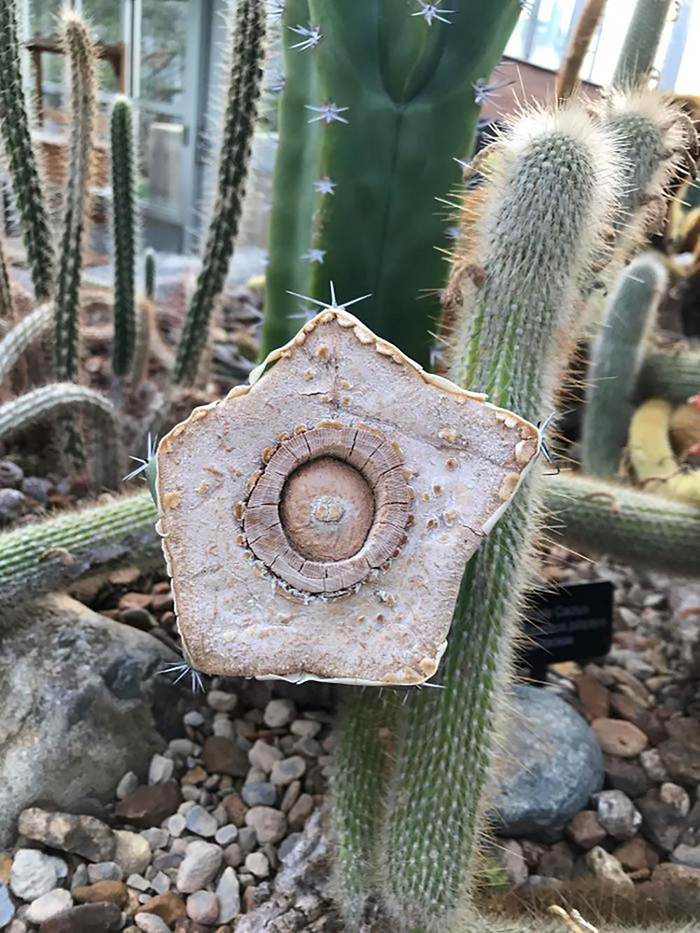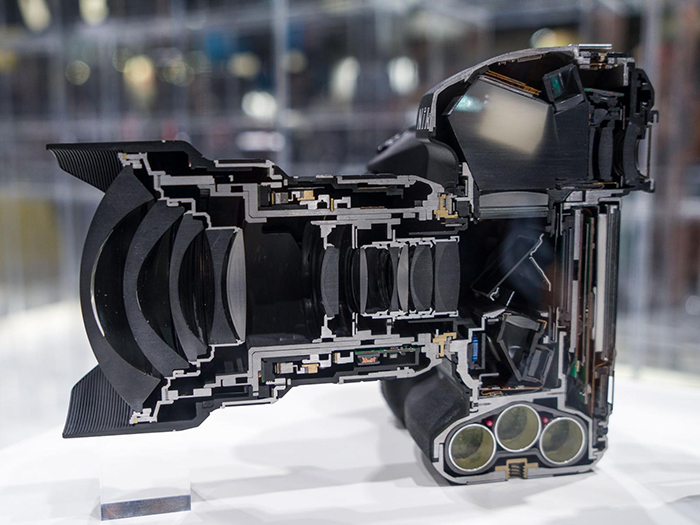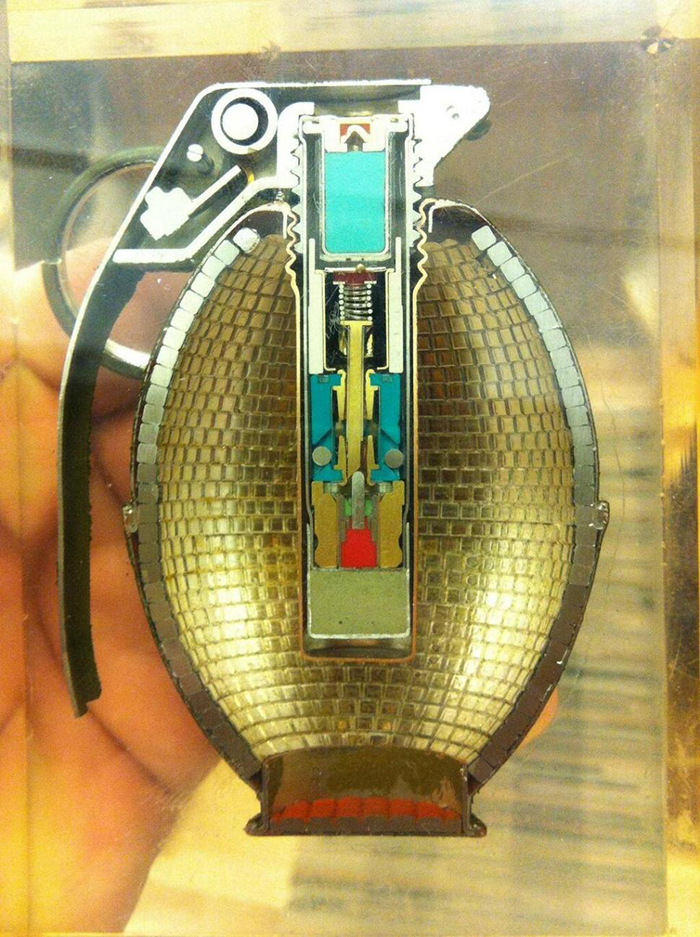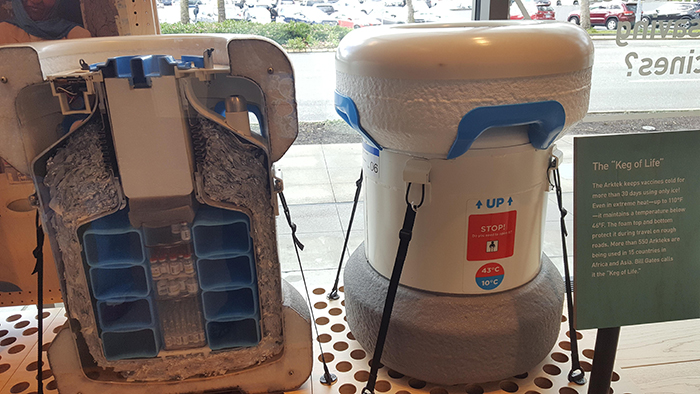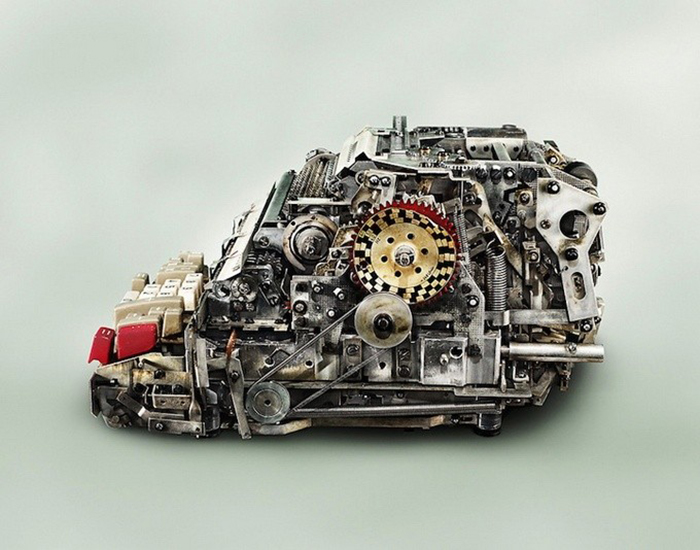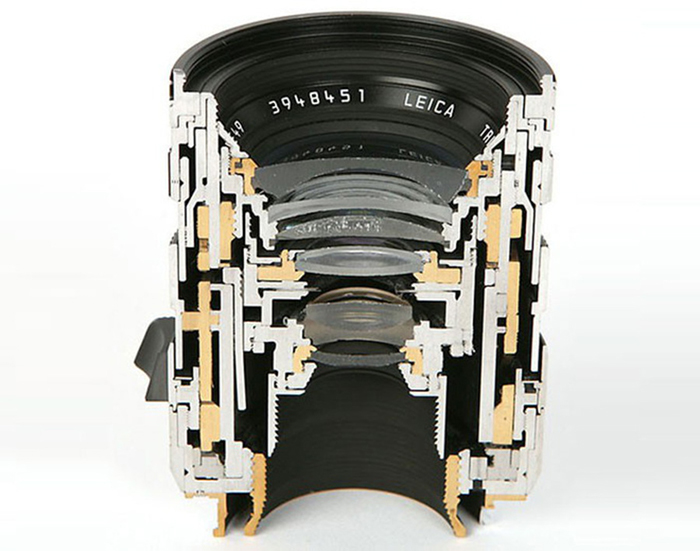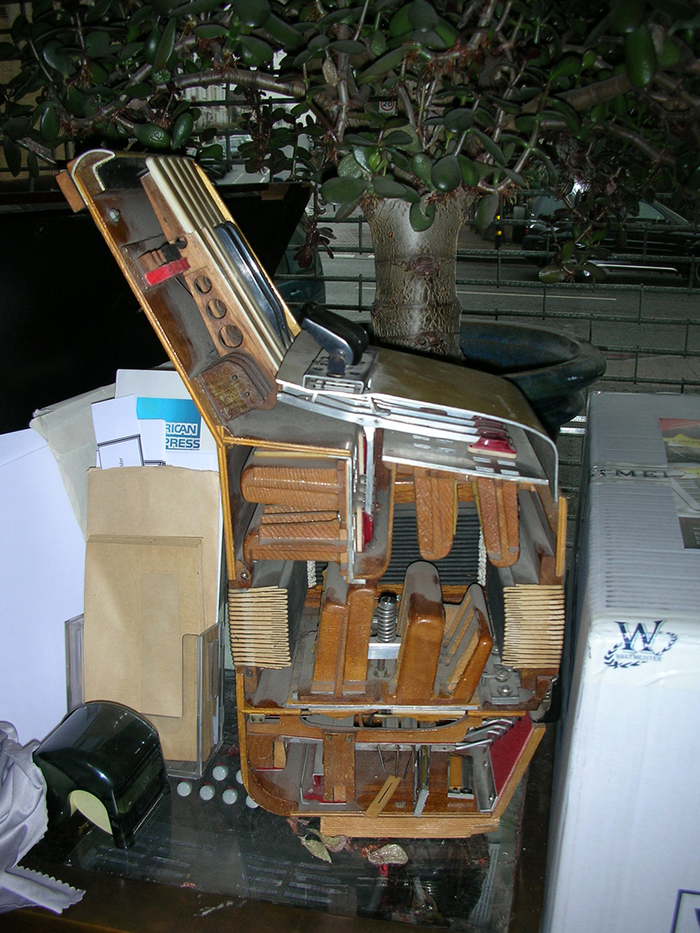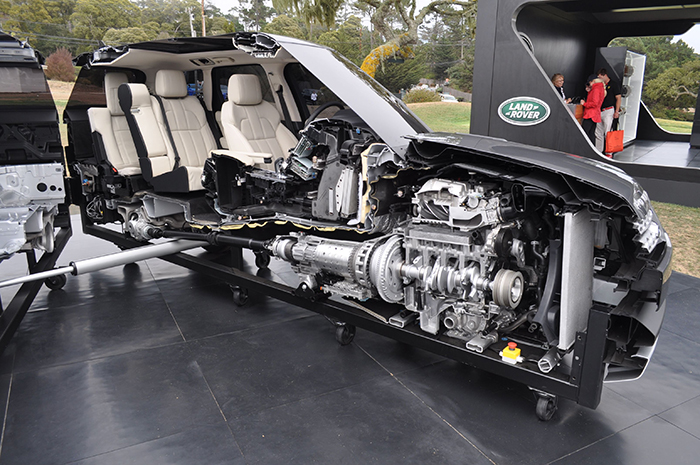If you were one of those hands-on children, who would cut in half their new toys just to see what's inside - this list is for you. Bored Panda already did a list on how common objects look from unusual perspectives - but this time, we're making the list solely on things that are cross-sectioned. There are number of random objects about which we were all wondering "what if I'd cut it open just to see what's hiding within?" Well, you can put away your knife and scissors now as there are people around the world who have already done it and took pictures of it so that you don't have to. Everything from bullets to hockey helmets, from pearls to baseballs - we've got it covered in this extensive list. Scroll down below to see the photos for yourself and don't forget to vote for those, which you liked the most.
This post may include affiliate links.
Fukang meteorite
This stunning piece of meteorite was found in the mountains near Fukang (hence the name), China back in 2000. The space rock is a pallasite - a type of stony-iron meteorite with olivine crystals. Fukang meteorite is estimated to be approximately 4.5 billion years old - almost the same age as our planet Earth.
Cut banana tree trunks
Interestingly, the banana tree is not even a tree per se as the stem does not contain true woody tissue. It is actually a big herbaceous plant with leaves rolled up one over another. The tender core of the banana stems (the so-called banana tree trunk) is widely used in South and Southeast Asian cuisines and the local people there consider the trunk to be a nutritious vegetable.
Rattle snake rattle
Native to North and South America, rattlesnakes are large venomous snakes, that are experts at hissing as well as their bone-chilling rattle. The rattle itself is hollow and is made of keratin (just like human's fingernails) that is located at the end of the serpent's tail. When the rattlesnake erects its tail and vibrates its muscles, these segments collide with each other, thus producing the rattling sound.
Pearls
Throughout the centuries, people have deemed pearls as one of the finest materials for jewelry. Their beauty is undeniable and they have become the epitome of rarity and refinement. However, what many people may not know is that the inside of the pearl looks just as beautiful, if not prettier, as the outside of it. Essentially, a pearl is formed when an irritant (usually a parasite) works its way into some type of mollusk. The animal then defends itself by coating the irritant in a fluid. The coating is called 'nacre' and layer upon layer of this coating forms a lustrous, glistening pearl.
Bloodwood tree (Pterocarpus angolensis)
Native to southern Africa, the bloodwood tree is a deciduous tree, meaning that it sheds its leaves seasonally. The sap of the bloodwood is bright red, which leaves no surprise in how the tree got its name in the English language. The Pterocarpus is much valued in Africa, as it provides a beautiful timber which is easy to work with. People use it for building furniture as well as canoes, as the wood does not shrink or swell that much.
Adding machine
An essential part of almost every office up until the 1970s, an adding machine is a class of mechanical calculator and was usually used for bookkeeping calculations. As the 70s approached calculators became more widely used and by the early 90s, personal computers took over. Thus, the adding machines were phased out and left most American offices completely by the year 2000.
'Mark Twain Tree' sequoia section with historical notations from year 550 to 1891
The first documented sighting of the giant sequoia took place in the spring of 1852, when a hunter named Augustus T. Dowd, entered North Grove woods while chasing down a bear. The trees gained a lot of popularity and a lot of people came forward who wanted to make money out of these wonders of nature. In 1891 the giant "Mark Twain Tree" was cut down. A slice of its trunk was sent to the American Museum of Natural History in New York, and another slice to the British Museum of Natural History in Kensington, London.
Tortoise skeleton
Tortoises as well as turtles are in fact the only reptiles with hard and bony shells. To no surprise, the shell works as a protective armor from the harm of the environment. The outer layer - carapace - is the shell that we see on the animal and beneath it hides the inner bony layer, then followed (looking down) by the rib bones. The lower shell of the tortoise is called plastron. If you ever were wondering why these lovely animals walk so slow - try imagining walking around yourself with a heavy protective armor, as it most certainly weighs the animal down.
Poppy capsule
The cross sectioned capsule of a poppy may look pretty for some, while for others it may cause an irrational fear just by looking at it (the image is a perfect way to check whether you have trypophobia). Poppies are herbaceous flowering plants, known not only for their looks, but for the drug-producing abilities, as well. Just recently, some rascal parrots have made the headlines, for they have been reportedly rampaging through the poppy farms in India, sometimes making 40 visits a day. The farmers believe that the birds might have become addicted to opium and are flying to farms frequently to get their daily fix of the drug.
Simulation to what happens when a small space debris object hits a spacecraft
The photograph shows the results of a lab test impact between a small sphere of aluminum travelling at approximately 6.8 km per second (approximately 4.2 miles per second) and a block of aluminum 18 cm (around 7 inches) thick. The diameter of the impact crater is 9cm (3.5 inches), while the depth is 5.3 cm (around 2 inches).
Rock in New Zealand
The rock, called Tokangawhā or Split Apple Rock, is located in a Tasman Bay off the northern coast of the South Island of New Zealand. The fracture of the rock (in geology, it is called joint) has formed naturally - such joints are common in granite and occur due to the exposure to rain and waves. However, the traditional Maori mythology says that the fracture occurred when two gods broke the rock apart.
Tree fern
It is believed that ferns are some of the oldest plants in the world, and a staggering number of 10,560 species of fern are known at the moment. These plants are members of vascular plants group that reproduce via spores. Tree ferns can grow big - up to 25 meters (or 82ft) in height. One of the more interesting facts about ferns is that people during the Victorian times were absolutely obsessed with them. These plants appeared in pottery, wood, metal, textiles, printed paper and sculptures and the obsession has even got its name - a Fern-Fever or Pteridomania.
'Lasagna' style bulb planting
This type of planting is also called double decker bulb planting and it refers to the placement of bulbs within the container. Different bulbs bloom at different points of time, and by planting them all in the same container, the planter is guaranteed to have a whole spring’s worth of successive blossoming.
I don’t think this is what Garfield has in mind when he hears the word “lasagne.”
Hedgehog
This tiny and incredibly cute creature has somewhere between 5000 and 7000 quills. Muscles along the animal's back can raise and lower them as a response to threatening situations. The inside of the quills are mostly hollow, with a series of complex air chambers making them light but strong.
Firework shell
While we all know that the Chinese had invented fireworks, it seems as if Italians don't get enough credit for the fact that they were the ones who actually introduced colorful fireworks. Not only that, but the Italian pyrotechnicians have also developed aerial shells back in 1830s. As far as the modern fireworks are concerned, the inner anatomy of the aerial shell is the one responsible for the produced firework shape.
Section of Golden Gate bridge cable
The Golden Gate Bridge has two main cables. Each cable is composed of an overwhelming amount of 27,572 wires which are bundled into 61 strands. It is not that easy to wrap your head around this fact, but if the wires were one continuous length, they could wrap around the earth over three times.
I've crossed that bridge many times and never had any idea the cables were this big.
Wasp nest
It is commonly believed that the wasps are not the friendliest animals out there - but in fact wasps are rarely aggressive unless provoked. There are also a lot - a whole lot - of them, as they live in every corner of the world, except for the icy Antarctica. These buzzers make their papery nests from tree bark. They strip it from certain trees, chew it all up, add certain enzymes and regurgitate it in a pulp form to create their magnificent-looking nests.
Military tank
Most us are familial with the concept of the military tank - however, it is not widely known that the polite Brits were the ones who introduced it during the World War I. By the early 1916 the prototype of the future tank was introduced. The heavy armored vehicle was used in combat for the first time in the Battle of Flers-Courcelette on 15 September 1916.
Bowling ball
Inside the ball, you can see an oddly shaped structure, which is called a weight block. It gives the ball the momentum it needs to roll down the lane properly. However, not all manufacturers make the same cores, therefore some are light bulb-shaped, while others are elliptical, and some are even a combination of both.
One of MANY different core shapes. This is on the higher performance end, but the sub $200 balls often just have an off-center spheroid core.
CT Scanner
The scan itself is know as computed tomography scan (formerly referred to as computerized axial tomography scan or CAT scan). It allows the user to see inside the object scanned without doing any actual cutting. The scanner makes use of computer-processed combinations of many X-ray measurements that are taken from different angles - thus, cross-sectional or tomographic images of the scanned object are produced.
Old style Zippo lighter
The iconic American brand Zippo has been around since 1933 and due to the quality of its windproof lighters, it is no wonder why they are still so wildly popular all across the globe. The inventor of the lighter - George Blaisdell - was smoking a cigarette on the porch of the Bradford Country Club back in 1932. He noticed a man using a strange lighter from Austria, which had a protective top. George asked the man why he used such a clunky lighter, to which the man replied: “Well, it works.” George then decided to make his own version of the lighter and he called it Zippo, simply because he liked the way word 'zipper' sounds. The first Zippo models were sold in 1933 for $1.95 (a little over $35 in today's money).
Subsea power cable
It is essentially a transmission cable for carrying electric power below the surface of the water. Such cables are usually carrying electric power beneath salt water - hence the name subsea, or submarine. However, such cables can be used beneath fresh water also, e.g. like they do to connect the mainland with the islands in the St. Lawrence River in US. The installation of such cables is a hard, tedious and super expensive work and, if necessary, they can be buried as deep, as the mountain Everest is tall.
Cactus
There are approximately 2000 different species of cactus and they differ in size, shape, color and their type of habitat. Obviously enough, cacti have spines instead of leaves. The spines have two major functions: they prevent loss of water via transpiration and keep the plant safe from animals. What is interesting though, is that certain cacti produce substance called mescaline which induces hallucinogenic effects.
Canon camera
Back in 2014, the very first Canon camera celebrated its 80th birthday. At first, the camera was called Kwanon and it was named after Kwannon, the Buddhist goddess of mercy. The engineers hoped this would entice the god to, “share her benevolence as they pursued their dream to produce the world’s finest camera.”
Fragmentation grenade
This type of grenade got its name for a reason - such hand grenades send out lots of very fast and very small fragments when they explode. Its body is usually made of a hard synthetic material or steel - the materials provide some fragmentation as shards and splinters. However, in modern grenades, a pre-formed fragmentation matrix is often used.
I've known how these are made for a long time and it always cracks me up in the movies when a fragmentation grenade causes a massive explosion and firebomb. They're actually pretty boring when they blow up - just a bang and some smoke. Then the fragments fly everywhere with the intent of putting enemy soldiers out of the fight.
Vaccine Container (The "Keg Of Life")
The container has two metal layers between which there is a high vacuum, which helps in reducing the convective heat losses. The material which resembles foil, is used to reduce radiative heat losses. The foam in the corners absorbs the shock from drops, while the blue plastic containers are filled with ice, and the foam in the middle is a removable element which allows the healthcare worker to reach in and access the vaccines.
Mechanical calculator
As incredible as it sounds, the mechanical calculator with a sophisticated carry mechanism, was invented back in 1642 by Blaise Pascal. After producing fifty prototypes over the course of three years, he finally introduced it to the public. This machine could add and subtract two numbers directly and multiply and divide by repetition.
Leica Summicron lens
The full name of the lens is Leica Tri-Elmar-M 28-35-50mm and it was released back in 1998. What is special about the lens, is that they are aspherical (a lens whose surface profiles are not portions of a sphere or cylinder). They were only produced for 9 years, from 1998 through 2007, due to the incredibly complicated design and expensive manufacture of it. You can still buy used lens on Ebay, but, as you can guess, the price of it is quite steep.
Accordion
It is a musical instrument which falls in the wind family. Accordion was invented in Germany, in the early 19th century by Friedrich Buschmann. In German the instrument was referred to as the Akkordeon, a name derived from the word 'Akkord' which means 'musical chord, concord of sounds'.
Land Rover
The original Land Rover was designed by an engineer Maurice Wilks who modeled it after the US-made Jeeps from the Second World War. Maurice decided to keep the vehicle's layout simple and more tractor-like, as it was conceived as an agricultural vehicle, so he put the steering wheel in the middle. It also meant that Rover could dodge the nuisance of building two different versions of the same vehicle for left-hand and right-hand drive markets.
machines are needed to make all those parts and those machines need machines to fabricate them :o
What do you do for a living? Saw things in half. Like what? You know, everyday items, bombs, animals, human hearts...
I'd love to know how they managed some of these, particularly the explosives.
If I were to guess, I'd say they do it with precision lasers.
Load More Replies...What do you do for a living? Saw things in half. Like what? You know, everyday items, bombs, animals, human hearts...
I'd love to know how they managed some of these, particularly the explosives.
If I were to guess, I'd say they do it with precision lasers.
Load More Replies...
 Dark Mode
Dark Mode 

 No fees, cancel anytime
No fees, cancel anytime 






